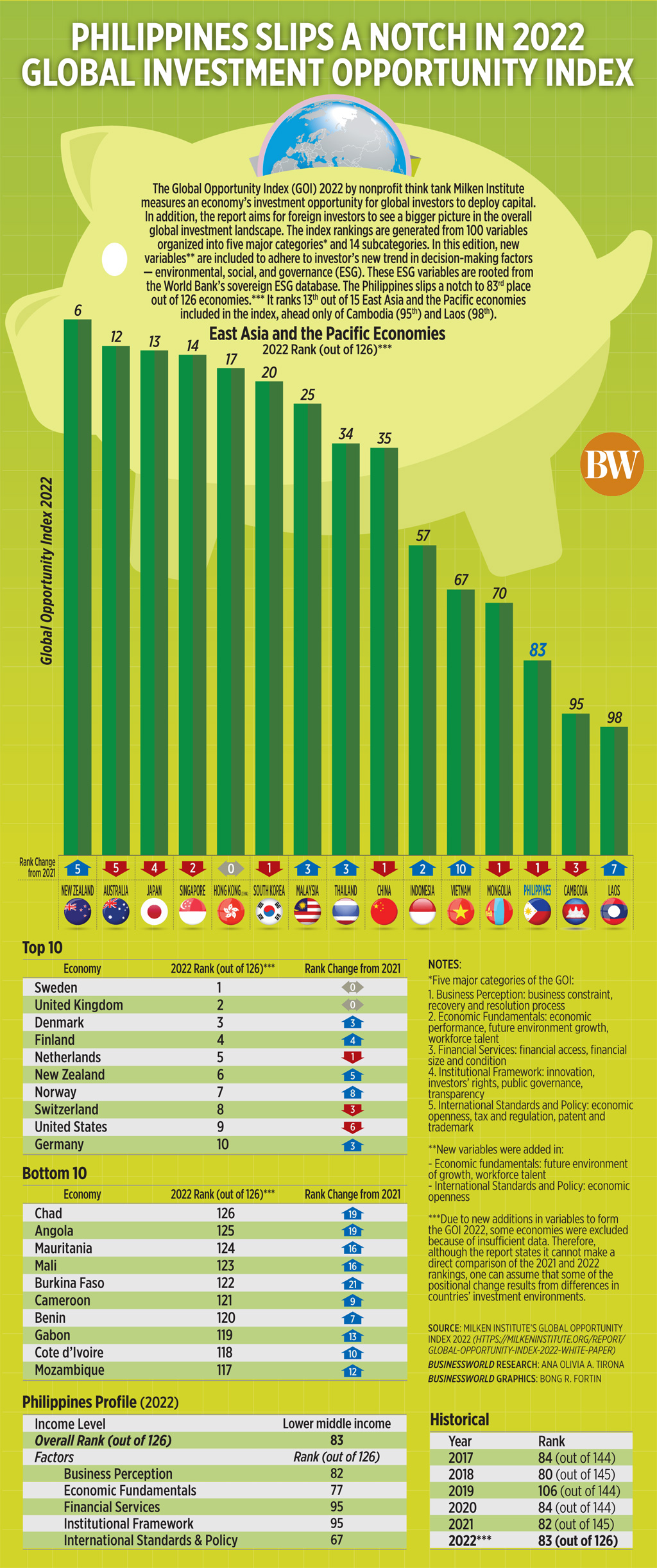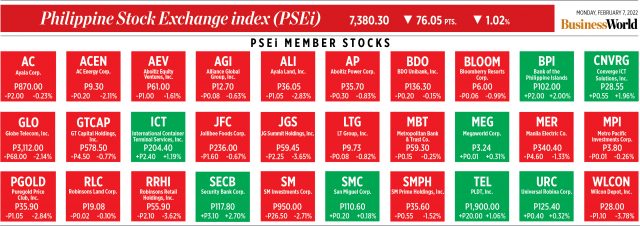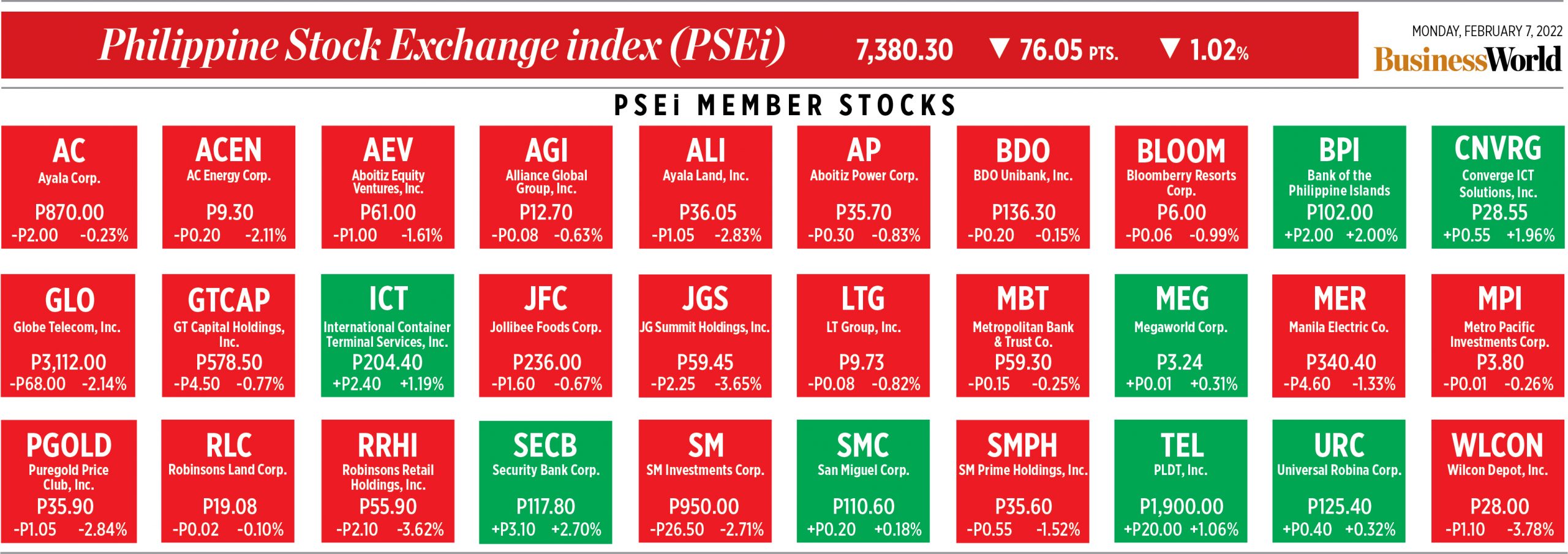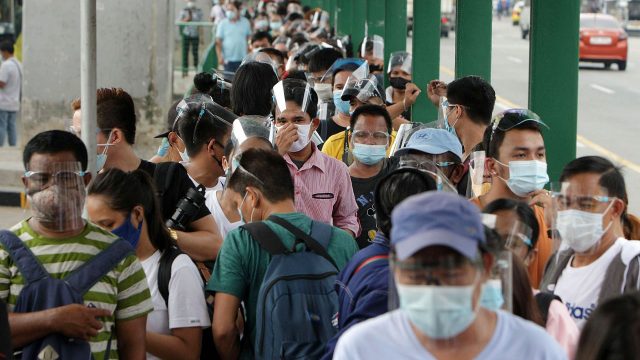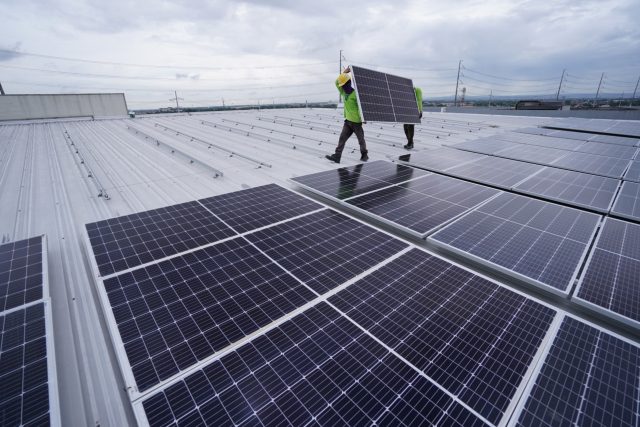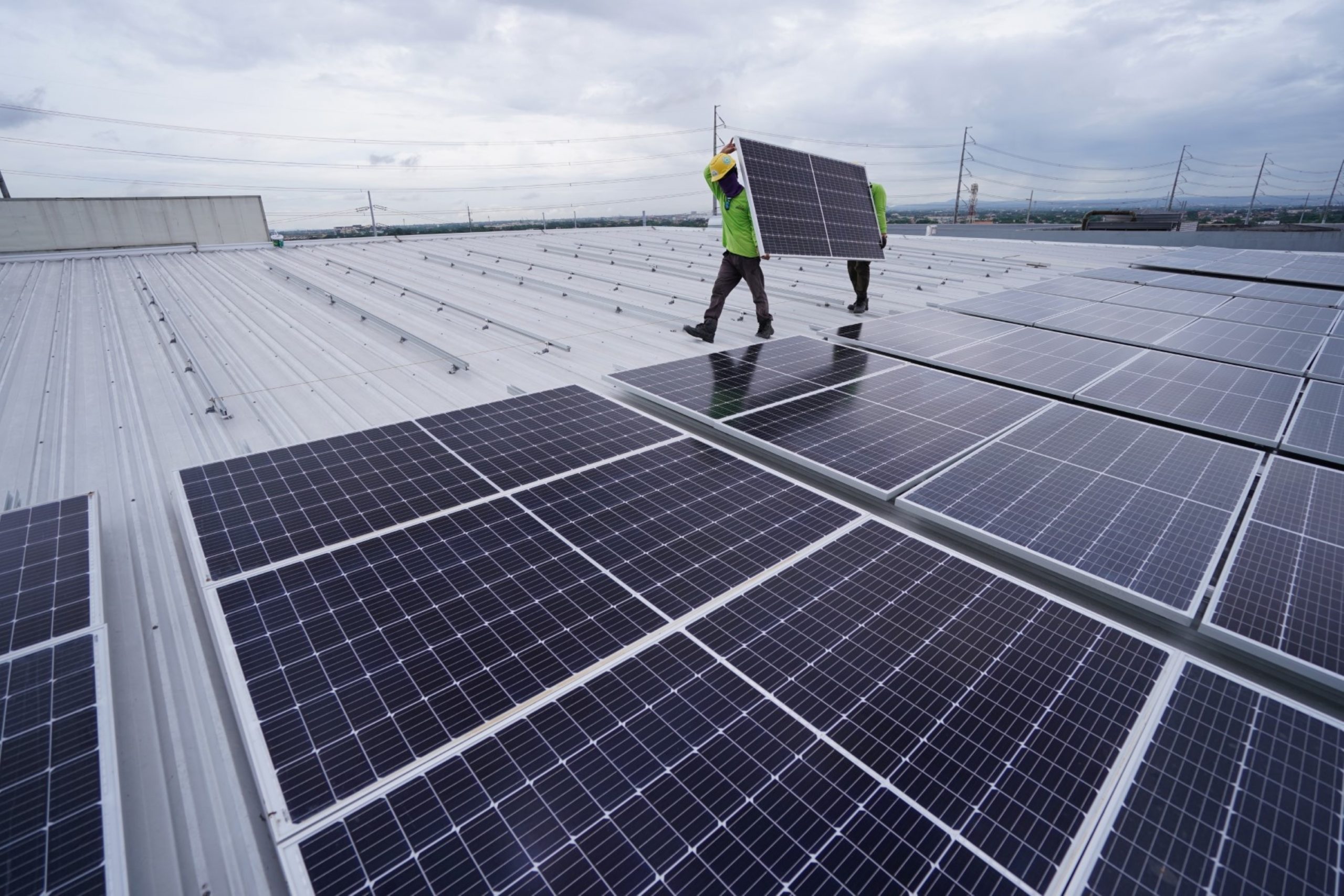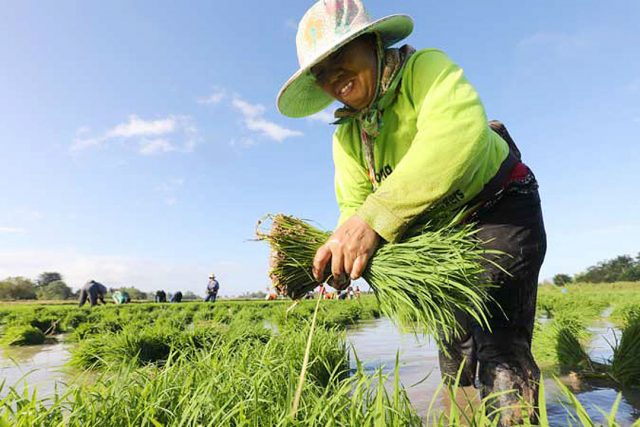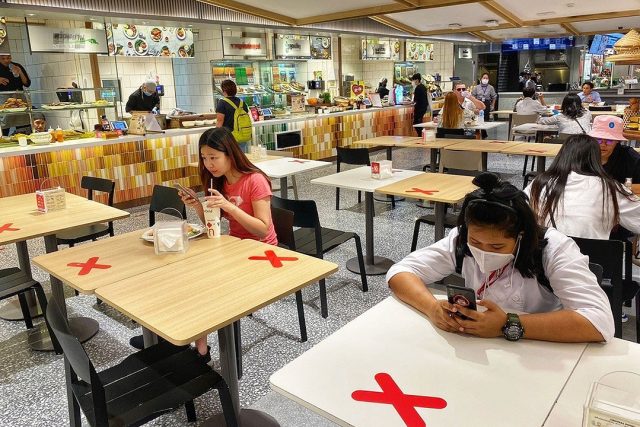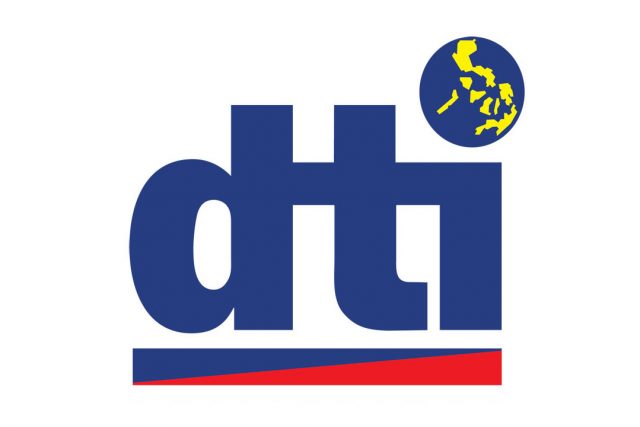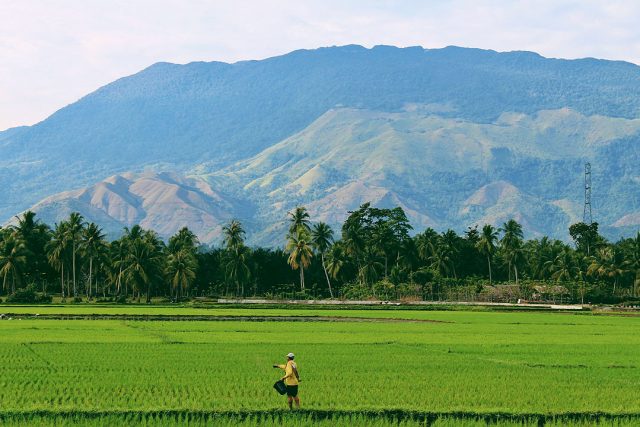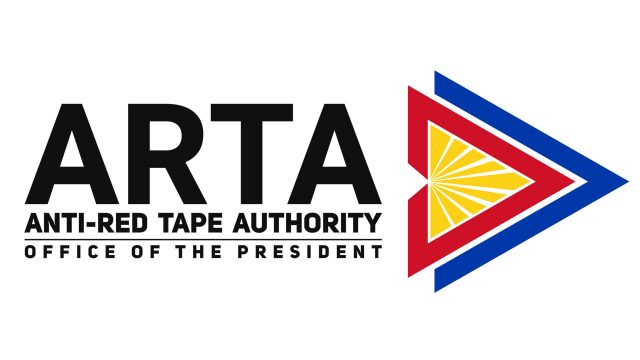ABOUT 45% of respondents to a Social Welfare Stations (SWS) survey expect the pandemic to end in “over a year,” with four out of five taking the position that “the worst is behind us.”
The results of the survey, conducted in December with 1,500 participants, were disclosed on Monday at an Asian Institute of Management webinar.
SWS President and Chief Executive Officer Linda Luz B. Guerrero presented the survey findings, which also indicated that 51% of the sample expect better economic conditions this year.
Of the other respondents providing an estimate of the pandemic’s duration, 29% expect it to end in the first half of 2022, and 23% believe the end will come by the end of the year.
Ms. Guerrero, citing data from Stratbase ADR Institute, said government collaboration with the private sector to accelerate growth is supported by 82% of that study’s participants. They specified areas of cooperation such as job creation, expanding livelihood opportunities, and poverty reduction.
Security Bank Corp. Chief Economist and Assistant Vice-President Robert Dan J. Roces said that first-quarter growth may be dampened by the surge in the Omicron variant of COVID-19, leading to regression in mobility, but a quick recovery is still expected.
“We’re expecting the government to keep the economy as open as possible as long as the hospital situation allows it,” he said during the forum.
“A quick growth turnaround is expected, and we’re expecting several industries to recover with it, based on how they behaved after Delta. You have utilities, manufacturing, construction, wholesale and retail, and transportation and storage,” he added, noting that such industries exhibited capital expansion after the Delta surge died down.
“Another industry that could recover with it is tourism and accommodation,” he added, “that’s going to recover from revenge travel spending.”
The Philippine economy is set to be boosted by “normalizing activity,” Mr. Roces said. Based on his bank’s projections, 2022 growth is expected to come in at 6.5%, with gross domestic product (GDP)of P19.6 trillion.
The economic modeling for such projections incorporate data as of the third quarter of 2021, though Mr. Roces said fourth quarter data later validated the trajectory the bank’s growth estimates.
“It seems the rebound in household consumption will be the key driver,” Mr. Roces said. This will be influenced by the pace at which the country can reach herd immunity, which he believes may be reached by March at the earliest, as well as increased domestic activity, improved sentiment, and higher remittances.
Investment, he added, will also help, supported by domestic consumption, manufacturing activity, business optimism, and election spending to some degree. Government expenditure is expected to grow by 4.5% as revenue collection should rise with the opening of more businesses, while pandemic spending is expected to decline.
On the other hand, Mr. Roces said the primary worry for households is likely inflation. The demand-pull effect will become more pronounced with the rebound in consumption.
“The BSP (Bangko Sentral ng Pilipinas) would likely remain accommodative in the first half to massage the recovery, but if demand-pull becomes more pronounced in the second half, they will likely review policy and institute a policy rate hike at a minimum of 25 basis points up to 50 basis points as a start of a normalization path,” he added.
Meanwhile, the SWS also found that net satisfaction with President Rodrigo R. Duterte remained “very good” as of December.
Ms. Guerrero said the President benefits from a strong base of support, his perceived decisiveness, and his administration’s actions in addressing poverty and the drug war.
However, only 32% of respondents showed approval for his China policy, most of them from Mindanao.
Ms. Guerrero noted that 47% of respondents believe the government is not doing enough to assert its sovereignty in the South China Sea, while 69% said that the country should form an alliance with other countries in defending the territorial and economic rights of the Philippines. They also proposed that the government build structures on vacant islands in the disputed sea.
Richard J. Heydarian, professorial chair on geopolitics at the Polytechnic University of the Philippines, said during the forum that surveys and research show that the country moving towards authoritarianism.
Citing the World Values Survey, he said that only 10% to 15% of Filipinos are committed to institutional checks and balances as a “vast majority of Filipinos expressed openness to authoritarian leaders.”
“It’s not so much Duterte alone himself, it’s also people wanting someone like Duterte, it’s just that he perfectly fits that kind of image, and if you look who’s the frontrunner right now in the presidential race and what that person represents… again we see that it’s a strongman,” he said.
“It’s a very powerful element in Philippine politics,” he added. — Alyssa Nicole O. Tan




